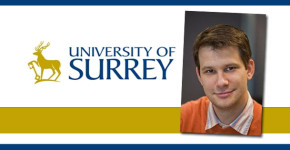Monthly Archive:: May 2014

Muhammed Khalifa, Michigan State University – Hip Hop Culture Identities
As hip hop culture expands, schools are expanding with it. Dr. Muhammad Khalifa, assistant professor of
16/5/2014
1

Peter Turchin, UConn – Cliodynamic Models of History
Can math be used to better understand history? Peter Turchin, professor of ecology and evolutionary biology
15/5/2014
0

Phillip Sponenberg, Virginia Tech – Fainting Goats
The Latin name myotonia congenitamight not mean much to you, but you’ve likely seen them in action.
14/5/2014
0

Yehuda Ben-Shahar, Washington University in St. Louis – RNA Messengers
RNA seems like the unsung little brother of DNA and protein. But Yehuda Ben-Shahar, assistant professor
13/5/2014
0

Bruce Peabody, Farleigh Dickinson University – American Heroism
“Big Data” is being mined to glean all sorts of information. Bruce Peabody, professor of political
12/5/2014
0

Elizabeth Borer, University of Minnesota – Grassland Fertilization and the Nutrient Network
It’s no secret that the presence of humans has a great effect on the environment. Elizabeth
9/5/2014
0

Christopher Fee, Gettysburg College – What a Living Wage Looks Like
Economic inequality and minimum wage are becoming increasingly discussed topics during these turbulent economic times. Chris
8/5/2014
0

King Davis, University of Texas at Austin – Segregated Psych Centers
During the 1800s, segregation was even visible in the medical arena. King Davis, professor and director
7/5/2014
0

Radu Sporea, University of Surrey – Sci-Fi Technology
The amazing technology we see in science-fiction is fast becoming reality. Radu Sporea, academic research fellow
6/5/2014
0

Paul Hearty, UNC Wilmington – Climate Change Patterns
What’s the best way to study climate change? Paul Hearty, associate professor in the Environmental Studies
5/5/2014
0
